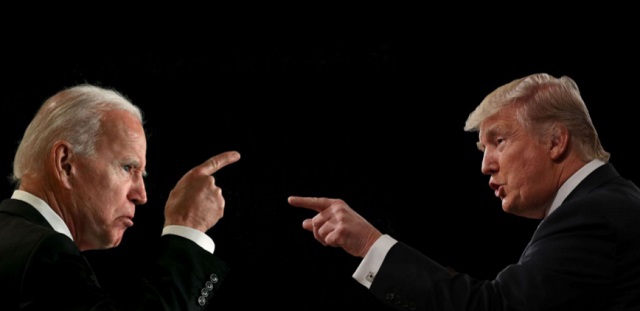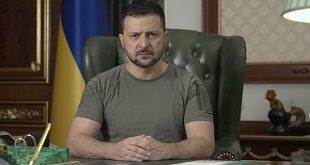
Shanksville, US | DENG XIANLAI & XU JIANMEI – XINHUA | The weather turned crisp and clear after a sudden downpour that sheeted the site in Shanksville, Pennsylvania, where United Airlines Flight 93, the fourth plane of the 9/11 terrorist attacks, crashed 20 years ago, claiming all lives onboard.
Windy and somewhat unexpectedly chilly at the juncture between summer and autumn, the weather reminded visitors at the Flight 93 Memorial of what preluded the horrifying event two decades ago, when the similarly “severe clear” condition, as pilots would often describe, in the morning indicated nothing but a perfect day for flying.
ONE DAY CONDENSED INTO 50 MINUTES
“I was looking forward to a rather benign morning and afternoon. And of course, that was disrupted quickly,” recalled Benedict Sliney, a firsthand eyewitness of the 9/11 attacks, for whom Sept. 11, 2001 was the first day on the job as a Federal Aviation Administration National Operations Manager.
Sliney told Xinhua in an interview that it was not until he watched live from the operations floor United Airlines Flight 175 slam into the south tower of the World Trade Center (WTC) in New York City that it became increasingly clear to him what was unfolding before his eyes — including what he then assumed to be American Airlines Flight 11 hitting the north tower of the WTC a short while earlier — was “a concerted action by a group of people who knew what their goal was.”
In response, Sliney ordered a national ground stop prohibiting any aircraft in the United States that was not airborne at the time from taking off — the first and only time in history that an order of such scope was made. Meanwhile, he also asked the Federal Aviation Administration’s air traffic control facilities across the country to report the identities of any “suspicious” aircraft, among which, it turned out, Flight 93, heading for San Francisco, California, was included.
The hijackers on the flight rerouted the plane southeast on a path toward Washington, D.C., planning to crash the airliner into what the bipartisan National Commission on Terrorist Attacks Upon the United States concluded in a 2004 report was either the White House or the Capitol Building.
The plot was foiled by passengers and crew members who fought back against the terrorists, resulting in the plane being deliberately downed into a field in Shanksville some 50 minutes after it was hijacked. At the time of the crash, Flight 93 would have arrived at the nation’s capital in 18 to 20 minutes had it maintained its speed and path.
The crash site has now become a national memorial dedicated to those who heroically sacrificed their lives to thwart an attack that would have been more damning both in terms of the potential death toll and the symbolism that came along with it.
“That 50 minutes or so was the entire day,” Sliney said. “We kept waiting for another crash. We don’t know what was out there.”
TWENTY YEARS OF BLOOD WITHOUT RESULT
A recent ABC News/Washington Post poll found that only 49 percent of Americans think their country is now a safer place 20 years after the 9/11 terrorist attacks, down from 64 percent a decade ago.
Forty-one percent instead said the United States has become less safe since 9/11, reflecting the doubt ordinary Americans have cast on whether it’s really worthwhile for their country to have fought several wars in the ensuing years against existing and emerging terrorist groups globally.
The poll also found a new high of 46 percent of respondents who said the lasting effect of 9/11 on the United States has been a change for the worse, exceeding the 33 percent who saw a change for the better.
While many visitors interviewed by Xinhua at the Flight 93 Memorial expressed the view that the United States has probably become safer now with regard to its vigilance against and military might to counter potential terrorist threats, they also contended that it was wrong for the country to fight protracted wars in the aftermath of 9/11, and that waging wars in so many parts of the world has tarnished America’s international reputation.
A Vietnam War veteran who “wasn’t in favor of going into war ever,” Sliney said, although he saw some similarities between the U.S. withdrawal from Vietnam in 1975 and its pullout from Afghanistan in August this year. “I suppose what we were really thinking of was 20 years of blood with no result — 20 years of people dying that didn’t really do anything.”
For Larry Schroeder, a retired Army officer, the “war on terror” has “swept up” so many innocent people not only in America, but also in many other countries — something the American people “don’t understand, nor (do they) accept.”
Even though U.S. military prowess remained unchallenged, the post-9/11 wars have had a negative impact on how the world views the United States, he added.
Echoing Schroeder’s words, was Autumn Colton, a nurse from Florida who happened to pass by Schroeder on her way to a monument at the memorial.
“I think we now have a bad reputation in a lot of countries. Whether it’s earned or not, I just think a lot of countries don’t like us because … we are arrogant.”
A NATION DIVIDED AFTER 20 YEARS
Many visitors to the memorial believe the United States remains divided on many issues, ranging from the presidential election to COVID-19 vaccination.
They attributed the division to political polarization and inadequate trust among ordinary citizens, saying that what has been tearing apart the country whose morale was initially defined by unity and pride, has nothing to do with the fight against terrorism.
“I think our country has become very divided about the presidential issues, about who should be president and how we got there,” said Petty Muller, a retiree from Florida, who expressed her worries of another possible war launched by the United States to fight terrorism in the future, because “the United States likes to control everything.”
David LaBelle, whose photojournalism career spanned 50 years, told Xinhua while photographing the memorial that he thought the United Sates has not become safer or stronger in the past 20 years due to unbridgeable divisions on so many fronts.
“I think we are a terribly divided country. We are divided over the vaccine. We are divided over race. We are divided over politics,” he said.
LaBelle has recounted several stories through his work about parents who lost their children in the Afghanistan war, which he said was “one of the biggest mistakes” the United States has ever made.
He said he was not sure what has changed after 20 years, “except that it’s very difficult for people to be honest; it’s difficult for politicians to be honest and tell the general public what is happening.”
“I’ve always been very patriotic,” LaBelle said. “But I have a harder time being patriotic right now. It’s harder for me to believe that. I just don’t believe our government.”
 The Independent Uganda: You get the Truth we Pay the Price
The Independent Uganda: You get the Truth we Pay the Price


